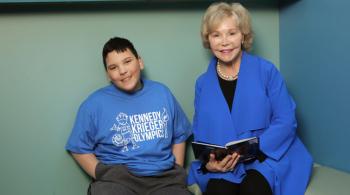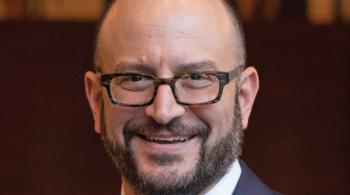By E. Mark Mahone, PhD
Director, Intellectual and Developmental Disabilities Research Center
Kennedy Krieger Institute/The Johns Hopkins University
Summer greetings on behalf of the Kennedy Krieger Institute/Johns Hopkins University Intellectual and Developmental Disabilities Research Center (IDDRC)! In this issue, I will highlight some of the history of the IDDRCs, both nationally and at Kennedy Krieger.
The national IDDRC network recently celebrated the 50th anniversary of the implementation of the Mental Retardation Facilities Construction Act, which in 1967 provided financial support for the development of 18 University Affiliated Programs (now called University Centers for Excellence in Developmental Disabilities) emphasizing treatment for neurodevelopmental disorders, and 12 research centers (later called IDDRCs) dedicated to scientific investigation into the cause and treatment of neurodevelopmental disorders, all of which have contributed to the scientific innovations that have improved the lives of individuals with neurodevelopmental disorders and their families. There are now 14 IDDRCs across the U.S., arranged as a national network of clinical and basic scientists working toward advances in clinical practice and training in the field of intellectual and developmental disabilities.
In 1987, a research institute was established at Kennedy Krieger by then-President Hugo W. Moser, MD. The IDDRC (which at the time was called the “Mental Retardation Research Center,” and was later called the “Mental Retardation and Developmental Disabilities Research Center”) was included as a central component. Since Dr. Moser’s presidency (1987–1996), the research center’s leadership has changed approximately every eight to nine years, with former directors overlapping with new ones to ensure stability and orderly succession. Other center directors have included Martha B. Denckla, MD (1996–2005); Michael Cataldo, PhD (2005–2014); Wayne Silverman, PhD (2014–2017); and E. Mark Mahone, PhD (2017–present).
The center currently represents a nucleus of the larger program of research supported through the recently renamed “Hugo W. Moser Research Institute at Kennedy Krieger” and carried out by our more than 140 research faculty members. Since 1987, examples of major scientific discoveries from our center have included: methods for diagnosis and treatment of adrenoleukodystrophy, discovery of the gene causing Sturge‐Weber syndrome, novel therapeutic trials for girls with Rett syndrome, clarifying brain pathology in cerebral palsy using diffusion tensor imaging, understanding the neural basis of autism spectrum disorder, developing and improving treatment outcomes for individuals with severe behavior disorders, optimizing motor learning and relearning for hemiparesis, and discovery of early brain biomarkers for attention deficit hyperactivity disorder.
For individuals with intellectual and developmental disabilities, interventions often do not result in a cure—behavioral and cognitive challenges remain, requiring involvement with their communities and necessitating a public health approach to interventions. In keeping with the overall goals of the National Institute of Child Health and Human Development and the National Institutes of Health, our center’s format now fully embraces translational science along the full continuum of “T4” translation, spanning: (T1) translation of basic science research to humans; (T2) translation to patients; (T3) translation to practice; and (T4) translation to communities (including schools) and policies (local/state/national). Our center’s link with MCDD is critical to this framework. With internationally recognized expertise and infrastructure, the center is well-equipped to meet its goal: to move knowledge along the labs-to-clinics-to-community continuum.
We look forward to providing additional information about the IDDRC in future issues. You can find more information about the 50-year history of the IDDRC network in a recently published article in Annals of Neurology.
For more information about the Kennedy Krieger Institute/Johns Hopkins University IDDRC, please visit the center website, or contact center Director Mark Mahone, PhD, or Co-Director Ali Fatemi, MD.









